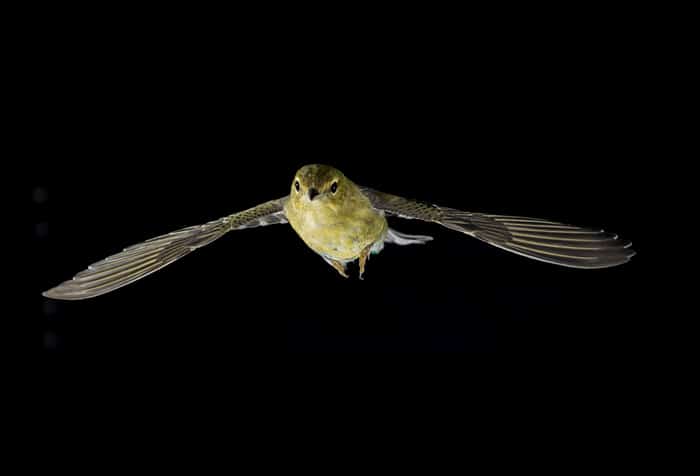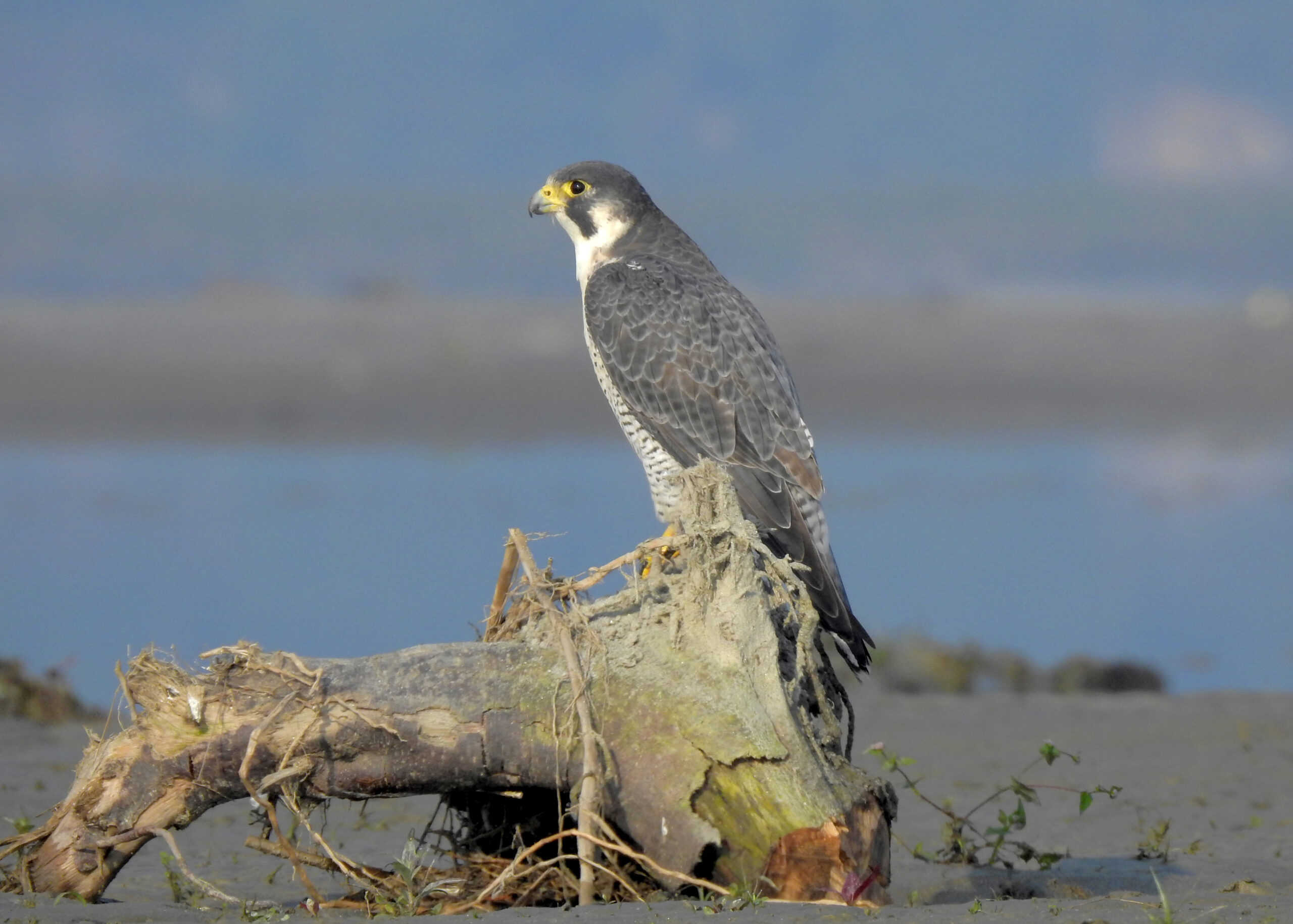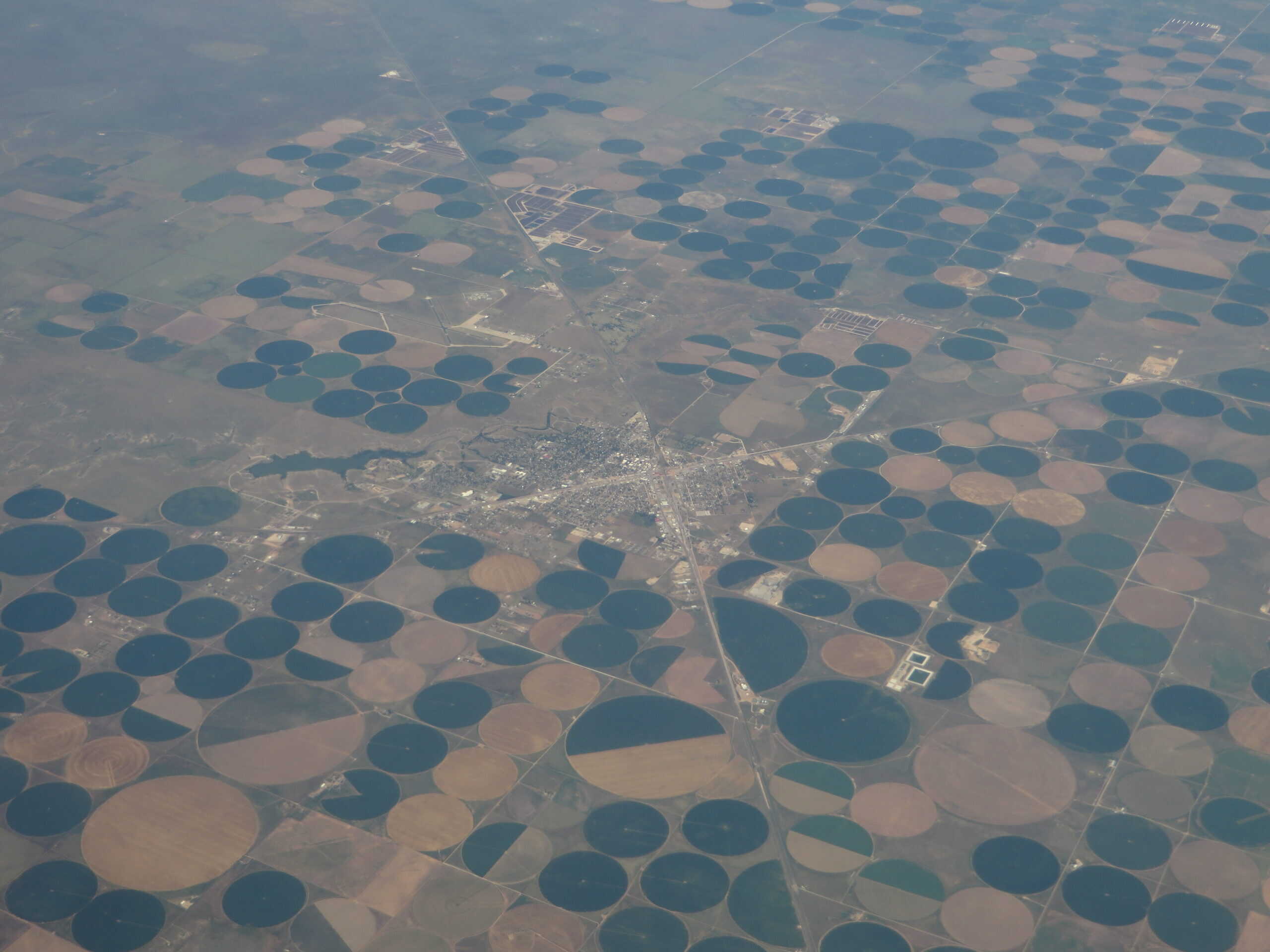Share this article
Protein boost fuels songbirds’ long migration
Recent findings upend the previous understanding of how songbirds make such long journeys
Researchers have made a surprising new discovery about how songbirds fuel their long-distance migrations. Scientists knew birds bulked up on fats to prepare for their journey, but a recent study found they also need a lot of protein—especially early in the flight. Before, biologists believed that migrating birds ramped up on protein only at the end of their journey.
“The birds in our tests burned fat at a consistent rate throughout their flights,” said Cory Elowe, the paper’s lead author and a postdoctoral researcher in biology at the University of Massachusetts Amherst. “But we also found that they burn protein at an extremely high rate very early in their flights, and that the rate at which they burn protein tapers off as the duration of the flight increases.”
Researchers captured birds at the Long Point Bird Observatory in Ontario and had them fly in a wind tunnel at the Advanced Facility for Avian Research at Western University. Elowe measured the birds’ fat and lean body mass pre-flight, then, when the sun set, let the birds free in the wind tunnel. Because the birds naturally migrate at night, Elowe and his colleagues would then stay awake—at one point, for 28 hours—watching for when a bird would decide to rest. At that point, the researchers took measurements again.
“We knew that birds burned protein, but not at this rate, and not so early in their flights,” said Alexander Gerson, associate professor of biology at UMass Amherst and the paper’s senior author.
Read the study in the Proceedings of the National Academy of Sciences.
Header Image: The blackpoll warbler can fly for thousands of miles without taking a break. Credit: Sherri and Brock Fenton/Western University








